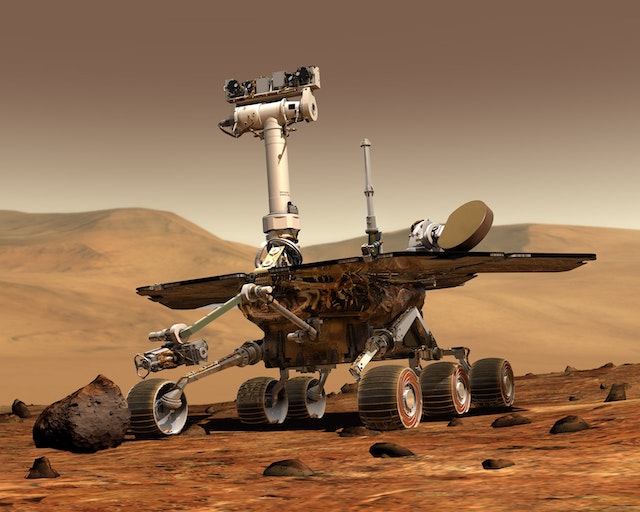Contents
1. AI Revolutionizing Industries
Importance of AI in the Modern World cannot be overstated. From healthcare to finance, education, manufacturing, and beyond, AI has found applications in nearly every sector. Its ability to analyze vast amounts of data, identify patterns, and make intelligent decisions has revolutionized traditional processes.

In healthcare, AI-powered systems aid in disease diagnosis, drug discovery, and personalized treatment plans. The finance industry benefits from AI-driven algorithms that assess risk, detect fraudulent activities, and make efficient investment decisions. AI’s presence in education introduces personalized learning experiences and intelligent tutoring systems, adapting to individual student needs.
2. Improving Efficiency and Automation
Importance of AI in the Modern World
One of the most compelling reasons for AI’s importance lies in its capacity to automate tasks and enhance efficiency. AI-powered automation has transformed mundane and repetitive tasks, freeing up human resources for more strategic and creative endeavors.
In the corporate world, AI-driven robotic process automation (RPA) streamlines workflows, reducing manual errors, and accelerating processes. In manufacturing, AI-powered robots optimize production lines, ensuring precision and maximizing productivity. The logistics industry benefits from AI’s predictive capabilities, optimizing supply chain management and reducing operational costs.
3. AI and Enhanced User Experiences
AI’s role in enhancing user experiences cannot be overlooked. Through sophisticated algorithms, AI systems can understand user preferences, behaviors, and intentions, providing personalized interactions. The importance of AI in the modern world is clearly seen in how it transforms customer engagement.
In e-commerce, AI-driven recommendation engines suggest products based on past purchases and browsing history, encouraging higher customer engagement and conversion rates. AI-powered chatbots provide real-time customer support, delivering instant responses and fostering customer satisfaction.
With continuous learning capabilities, AI adapts to changing user needs, offering more relevant suggestions and streamlining digital interactions. From voice assistants to predictive text, the importance of AI in the modern world shines through as it enhances convenience, accessibility, and satisfaction across digital platforms.
Key ways AI improves user experiences include:
- Personalized Recommendations: AI analyzes user data to suggest tailored products, services, or content, boosting engagement and satisfaction.
- Intelligent Customer Support: Chatbots and virtual assistants offer instant, 24/7 support, resolving queries efficiently and reducing wait times.
- Predictive User Behavior: AI anticipates user actions, enabling proactive solutions and smoother navigation across websites and applications.
4. AI’s Contribution to Research and Development
AI has accelerated research and development processes in different fields. The ability to treat and analyze the large versions of data allows researchers to make success and innovations more effectively. AI technologies help to solve complex global challenges faster and more accurately than ever.
AI’s most important contribution in R&D includes:
- Fast data processing: AI systems quickly treat large datasets, identify trends and insights that inform about important research decisions.
- Predictable modeling and simulation: AI increases simulation in areas such as climate science, biomedical engineering and material research, reduces time and costs.
- Medication and genomics: In the health care system, AI supports the rapid discovery of new medicines and genetic research, which paves the way for personal medical and treatment plans.
Overall, AI continues to reopen how the research is carried out by the concept for the implementation, accuracy and by reducing the time to operate innovation in industries.
5. The Future of AI: Ethics and Responsibility
As AI continues to shape the modern world, discussions around its ethics and responsible implementation become crucial. It is essential to ensure that AI technologies are developed and used ethically, respecting privacy, security, and human rights.
AI developers and policymakers must work together to establish robust frameworks and guidelines to address potential biases and unintended consequences. Responsible AI development will enable us to harness its full potential while safeguarding societal values and the well-being of humanity.
Conclusion
Finally, artificial intelligence is a revolutionary force that makes intensive changes to the modern world. The applications spread in industries, improve efficiency, adapt experiences and catalyze research and development. However, when we embrace AI’s power, we should do this responsible with a strong commitment to morality and social welfare.
Importance of AI in the Modern World can take your site to new heights in Google Rankings. AI by incorporating privatization, by increasing the user experiences and taking advantage of your ability to automate tasks, you can draw an extensive audience and establish a strong online look. Ethical business integration of moral AI solutions will not only thrive in the digital age, but will also promote trust and stability in their customer relationships and innovation strategies.





